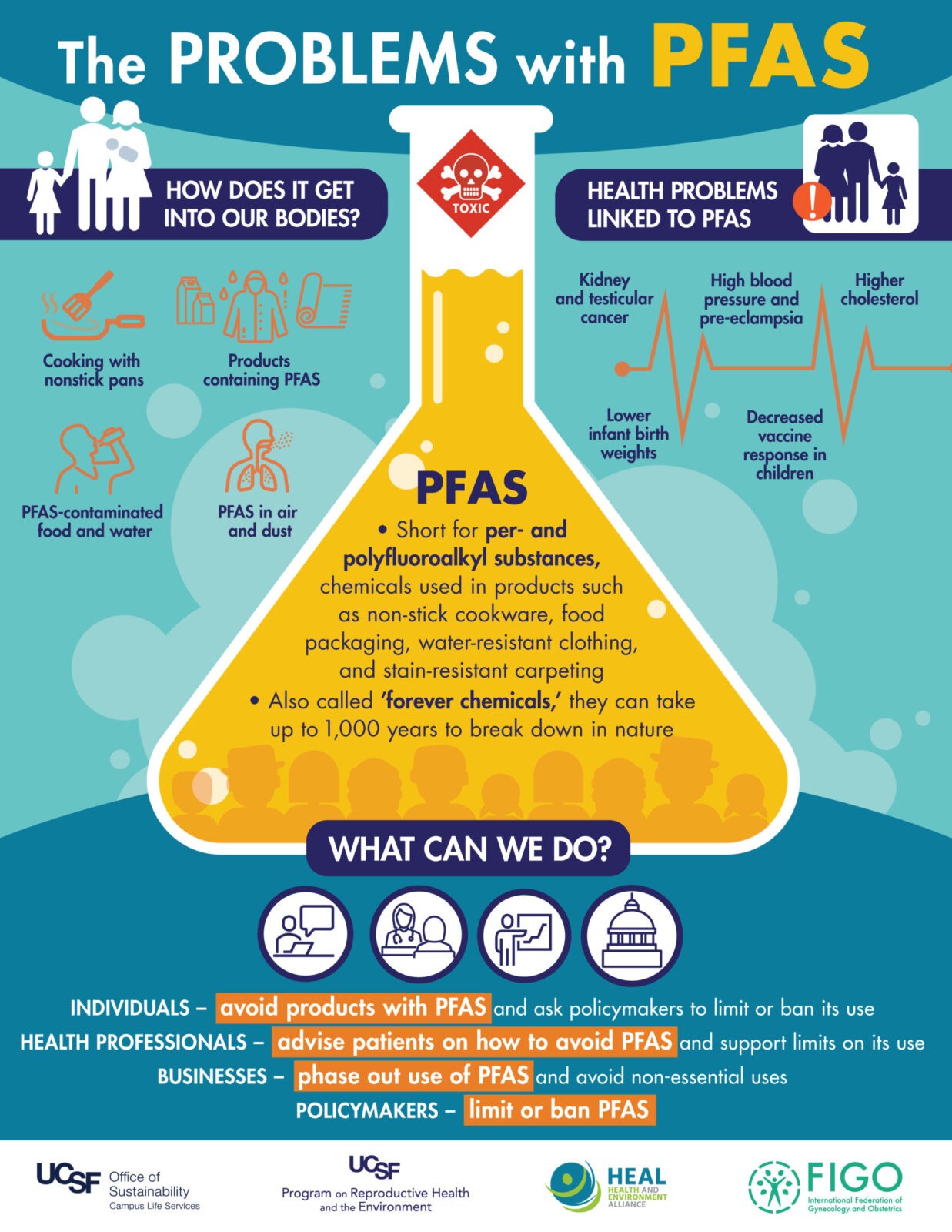HEAL welcomes the call from 250 scientists urging the European Commission to follow scientific recommendations and include provisions to account for the effects of chemical mixtures to better protect health in the upcoming revision of REACH, the EU’s regulation for chemicals.
The International Federation of Gynecology and Obstetrics (FIGO) organised a webinar ‘Stitching the gap between environmental effects and women’s health’ in May 2023. HEAL’s Health and Chemicals Programme Lead Natacha Cingotti discussed the impact of Per- and polyfluoroalkyl substances (PFAS) on health and the joint efforts of HEAL and FIGO in the prevention of these environmental toxins.
“PFAS are everywhere, accumulate in our environment and our bodies and are extremely persistent. This not only means that we are all exposed to them but that our exposure will continue to grow. This increases our and future generations’ susceptibility to the harmful impacts of such substances, because PFAS can be transmitted transgenerationally, which is why HEAL has so actively engaged OB-GYN professionals within different FIGO chapters and regions on this issue to inform their patients, contribute to prevention and ask for increased regulation.” Natacha Cingotti stated, continuing: “Next to the urgent need to curb PFAS production and emissions in the environment, the ubiquity of these chemicals – sometimes at very high levels in certain hotspots, makes health and environmental monitoring and follow-up a priority for action.”
HEAL, FIGO and University of California in San Francisco have developed infographics available in several languages on the topic: the problem with PFAS, toxic chemicals and pregnancy and pregnancy and climate change. Also explore HEAL’s new website covering how PFAS pollution affects people’s health across European cities, and HEAL’s PFAS campaign page.

Infographic: ‘The problem with PFAS’ – also available in English, Dutch, French, German, Italian, Spanish and Serbian.
“The longer we wait to take action to minimise our exposure to harmful chemicals and devise effective prevention strategies, the more unmanageable the consequences will become. The cocktail effects of our chronic exposures to chemicals, including PFAS, should be a priority for policy action. Our plea towards decision makers: if we want to keep the planet habitable and prosper as a society, we need to take hard decisions to drastically reduce our exposure to environmental contaminants today. We need to ask ourselves difficult questions about which chemicals we really need, and establish clear criteria for market approval on that basis.” Natacha Cingotti reminded participants.
This FIGO webinar was organised by the Committee on Climate Change and Toxic Environmental Exposures, of which HEAL is a longstanding member. The insightful webinar focused on environmental hazards that can have consequences such as preterm births and cancer, and how these threats can be mitigated. Other speakers included Prof Ditas D. Decena (Chair of FIGO’s Committee on Climate Change and Toxic Environmental Exposures, Philippines), Prof. Ramkumar Menon, Dr. Aparna Sridhar (Chair of FIGO’s Committee on Contraception), Dr. Tali Pomerantz.
Watch the full webinar recording here to learn more.


